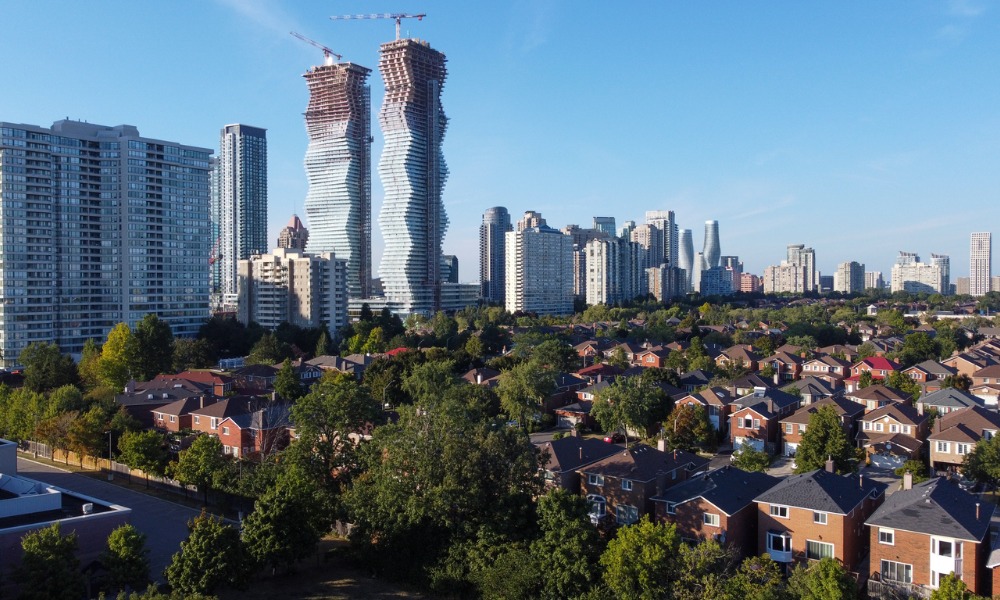Major financial challenges ahead as city plans 120,000 new homes

Mississauga's next mayor will confront a significant financial hurdle: funding $12.8 billion in infrastructure to support the city's growth.
Canada Mortgage and Housing Corporation (CMHC) said that to meet affordability targets based on 2004 prices, 5.8 million homes need to be built nationwide by 2030, requiring an estimated $600 billion in municipal infrastructure.
For Mississauga, tasked with creating 120,000 new homes in seven years, this translates to a staggering $12.8 billion.
The city currently holds $14 billion in assets, much of which needs repair or replacement, with insufficient funds to address these needs, according to the Local Journalism Initiative citing 2022 budget document.
"The city’s current funding sources do not allow for full funding of the City’s SGR (state of good repair) needs," the document read.
In 2022, City Hall faced a $40-45 million annual shortfall, with $400-450 million in unfunded infrastructure needs over a decade. Pavement projects alone are projected to leave a $30-43 million funding gap by 2031, while stormwater infrastructure requires an additional $3 million annually for the next decade.
The introduction of Bill 23 by the Doug Ford PC government, which limits the city's ability to fund essential housing-related infrastructure, further exacerbates this financial strain.
Mississauga estimates a loss of $815-885 million in development charges over the next decade due to the legislation. Former city manager Paul Mitcham described the financial impact as “devastating” and the legislation as “the most significant” the municipality has ever faced.
Candidates for the upcoming mayoral election have expressed varying strategies to manage these financial challenges. Stephen Dasko emphasized the need to avoid tax freezes, stating, "It would be totally irresponsible to support tax freezes for Mississauga for the next two years." Dipika Damerla proposed maintaining taxes at or below the inflation rate and suggested pausing certain projects to fund essential services.
Carolyn Parrish supported keeping taxes at or below inflation but acknowledged emergencies could necessitate tax hikes. She proposed quarterly budget reviews by ward councillors to track financial commitments and their impacts.
George Tavares opposed tax freezes, labelling them "short-sighted," and advocated for responsible fiscal management with tax increases around the inflation rate.
Alvin Tedjo, the lone candidate advocating for a two-year tax freeze, cited the affordability crisis as a primary concern. His plan includes a property tax rebate for seniors and a new tax classification for local small businesses.
"Everyone is feeling the pinch of inflation and rising interest rates — now is not the time for a tax increase," Tedjo argued.
The city's 2024 financial blueprint outlined a 2.34% tax increase to fund $679.5 million in operating costs, a 6.3% increase over 2023. The capital budget for 2024 stood at $531.3 million, emphasizing the need to maintain infrastructure in a state of good repair.
However, the document noted, "The City’s current funding does not fully fund all capital requirements, but balances the need to maintain City infrastructure, fund new projects as required, and minimize debt."
Read next: Experts skeptical over province's ability to build thousands of new homes
Mississauga's infrastructure needs have been compounded by decades of financial neglect. The 2024 budget highlighted that 65% of city buildings are about 30 years old, with only two-thirds in fair-to-good condition. The city's infrastructure gap continues to grow, requiring significant investment to maintain a "state of good repair."
Candidates have also highlighted the necessity of securing funding from higher levels of government.
Parrish stressed the importance of collaboration with provincial and federal counterparts, while Tedjo called for a new partnership to address the structural fiscal imbalance facing municipalities. Dasko and Tavares both emphasized the need for a fair deal on infrastructure funding.
Make sure to get all the latest news to your inbox on Canada’s mortgage and housing markets by signing up for our free daily newsletter here.



